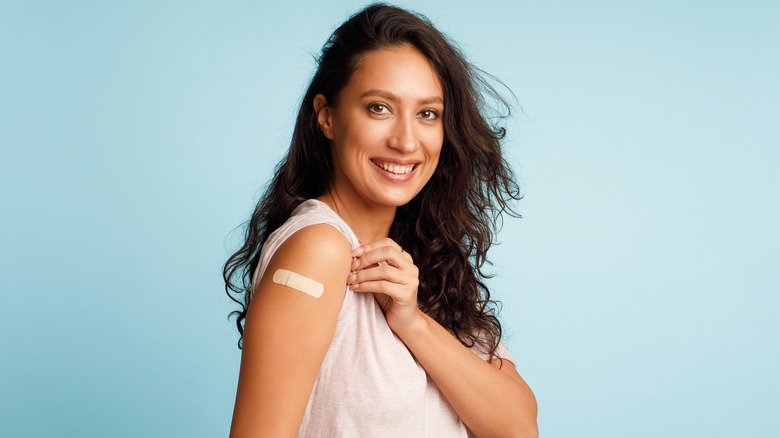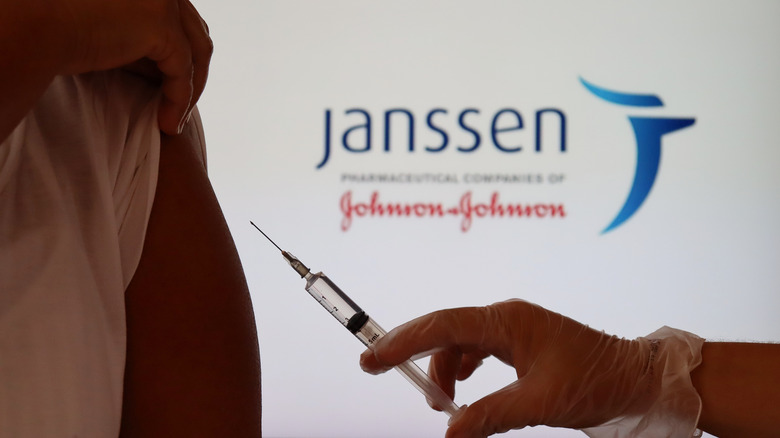How Long Does The Johnson & Johnson COVID-19 Vaccine Last?
The Johnson & Johnson COVID-19 vaccine is the only FDA-authorized one-shot vaccine for COVID-19 available for United States citizens. The other two vaccines, Pfizer and Moderna, each require two doses.
Earlier this year, the Johnson & Johnson vaccine made headlines due to concerns about blood clotting. After a brief pause and investigation, the CDC and FDA revealed in a joint statement that the risk of blood clotting was a rare adverse effect from the shot — about a one-in-a-million chance. After concluding their safety review in April 2021, the CDC and FDA lifted the pause on the vaccine.
Because the Johnson & Johnson vaccine proved to be 85% effective 28 days after the one-dose shot in clinical trials, the FDA authorized it for emergency use in late February 2021 for people ages 18 and older (via Johnson & Johnson). However, since all COVID-19 vaccines are relatively new, experts are still studying how long they will remain effective and whether or not you'll need a booster shot. Here's what we know thus far.
How long can you expect your Johnson & Johnson vaccine to last?
How long each COVID-19 vaccine is able to retain its effectiveness is difficult to know. We know how long vaccines for other diseases are effective because they have been around for decades. Experts studied them over time and determined which ones needed booster shots and which ones did not.
Nevertheless, according to a statement from Johnson & Johnson released on July 1, 2021, studies show that this vaccine effectively fights severe cases of COVID-19, including the Delta variant and others, for "at least eight months." Instead of waning, the antibody response created by the vaccine is increasing over time. However, this information stems from studies on vaccinated people's blood, not real-world data.
According to CNN, Pfizer and Moderna have both reported that their vaccines are effective for a minimum of six months, but researchers have said that protection from COVID-19 should last much longer than that, perhaps even years.
Johnson & Johnson is reporting that their vaccine will not need a booster shot, but the United States National Institutes of Health is working with Johnson & Johnson to see if two shots would make the vaccine even more effective (via CNN). Dr. Anthony Fauci, the National Institute of Allergy and Infectious Diseases director, agreed that the Johnson & Johnson vaccine is a "highly effective vaccine."


